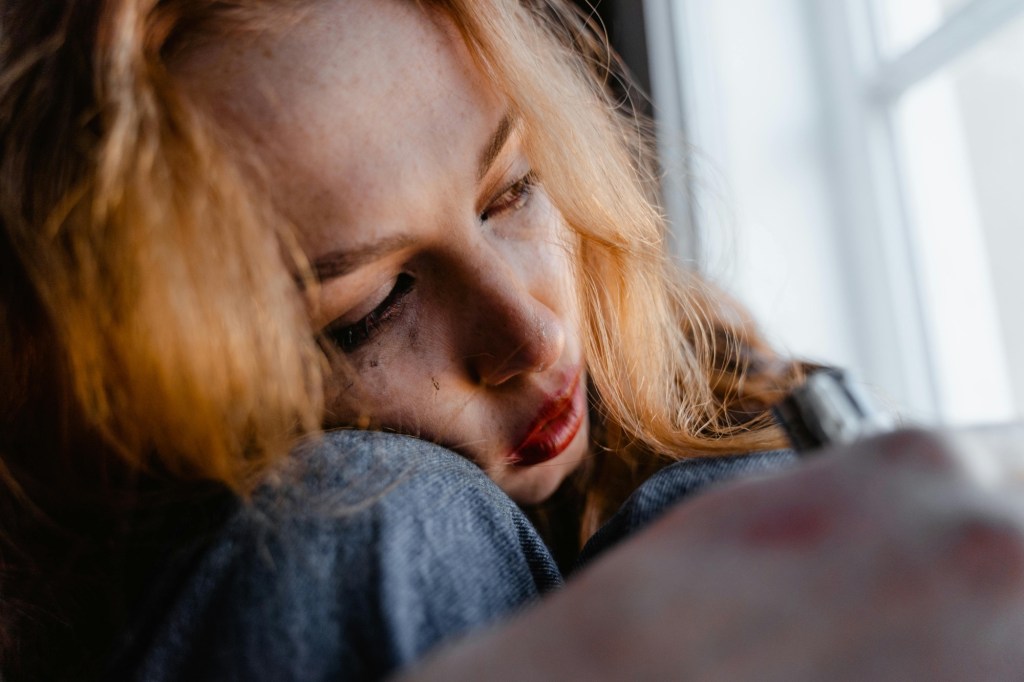
What is Bullying?
Bullying is a repeated, intentional behavior that exploits a power imbalance. It can occur in schools, workplaces, social groups, online spaces, or even in communities that are expected to be safe. Bullying is harmful and manipulative, and its effects can be long-lasting, impacting emotional, psychological, social, and physical well-being.
Forms of Bullying
Bullying can manifest in numerous ways:
Physical bullying: Harming someone’s body or belongings through hitting, pushing, theft, or vandalism.
Verbal bullying: Name-calling, teasing, threats, or degrading comments.
Emotional bullying: Intimidation, humiliation, belittling, shaming, or undermining a person’s confidence.
Social bullying: Collective isolation, exclusion from groups, spreading rumors, withholding important information, and manipulating friendships or social relationships.
Cyberbullying: Harassment, threats, or humiliation online via social media, messaging, or email, often anonymous and relentless, leaving victims with no safe space to retreat.
Bullying often combines several forms simultaneously. For example, social bullying can be accompanied by emotional manipulation, and cyberbullying may amplify verbal attacks.
Why People Bully
Individuals engage in bullying behavior for a variety of reasons. Some act out of a desire for control, dominance, or social power. Others may have insecurities, jealousy, or fear of being exposed, using bullying to deflect attention from their vulnerabilities. Some have learned aggressive or manipulative behaviors from past environments or family dynamics. Bullies often present a socially acceptable or competent exterior to hide harmful tendencies.
In group situations, bullying can escalate as individuals join in to protect themselves, gain favor, or conform to social pressures, especially when the bully is popular or influential. This group dynamic can make bullying more intimidating and difficult to address.
Why Victims Often Do Not Report
Victims frequently do not report bullying due to fear, shame, embarrassment, or uncertainty about how to respond. Many endure it silently, hoping it will die down, only to find the behavior escalates. Bullies frequently triangulate conflicts, drawing others in, spreading misinformation, or manipulating peers to isolate the victim. This can intensify the victim’s sense of powerlessness and encourage more people to participate, particularly if the bully is socially dominant.
Impacts on Victims
Bullying can affect individuals in multiple ways:
Emotional impacts: Anxiety, depression, fear, loss of confidence, and social withdrawal.
Physical impacts: Headaches, stomach aches, sleep disturbances, or other stress-related symptoms.
Social impacts: Isolation, loss of friendships, or reluctance to engage in school, work, or community activities.
Academic or professional impacts: Decreased performance, absenteeism, or disengagement.
Warning Signs of Bullying
Early recognition of warning signs is essential for timely intervention. Victims may exhibit:
Avoidance of certain people, places, or social situations. Sudden changes in mood, behavior, or personality. Unexplained physical injuries or complaints such as headaches or stomach aches. Withdrawal from friends, colleagues, or usual activities. Reluctance or anxiety about engaging with digital devices or online spaces. Decreased performance at school or work, missed deadlines, or frequent absenteeism.
Recognizing these warning signs can allow friends, family, educators, or colleagues to intervene and provide support before bullying escalates further.
Addressing Bullying
For Children
Parents and guardians play a critical role by encouraging open communication, creating safe spaces to discuss experiences, and teaching empathy and coping strategies. Practical steps include supporting children in forming healthy friendships, knowing when to remove themselves from harmful situations, and seeking help from trusted adults or school authorities. Schools play a key role by establishing anti-bullying policies, fostering inclusion and empathy, and responding promptly to cyberbullying with digital safety education.
For Adults
Bullying in adulthood can be subtle and complex, including exclusion from key information, undermining work or professional contributions, intimidation, or social manipulation. Adults can respond by documenting incidents, setting firm boundaries, seeking guidance from trusted colleagues or human resources, and escalating concerns through formal channels when necessary. Maintaining self-care through counseling, stress management, and supportive relationships is vital for coping with the impact of bullying.
Cyberbullying
Special precautions are needed for online harassment. Protective strategies include monitoring online interactions, using privacy settings, reporting harassment, and seeking support from trusted individuals or professionals. Communities, organizations, and institutions must foster cultures of accountability, respect, and inclusion to minimize opportunities for bullying to thrive.
Collective and Group Dynamics
Bullying often escalates in group settings. A popular or influential individual may orchestrate or encourage others to participate, using peer pressure, triangulation, or manipulation. Victims may be socially ostracized or misrepresented, reinforcing the bully’s control and isolation. Recognizing these patterns is essential in schools, workplaces, and social settings to prevent escalation and protect vulnerable individuals.
What Can Be Done About Bullying
Addressing and preventing bullying requires coordinated action from both individuals and organizations. Effective strategies include:
Recognize and acknowledge bullying: Understand its various forms and warning signs.
Document incidents: Keep detailed records for reporting or escalation.
Set boundaries: Clearly communicate limits and refuse to tolerate abuse.
Seek support: Engage trusted friends, family, colleagues, mentors, or professional advisors.
Report: Escalate concerns to schools, HR departments, or legal authorities when necessary.
Promote safe environments: Encourage policies, training, and programs that prevent bullying and support victims. Practice self-care: Prioritize mental and physical well-being, counseling, stress management, and supportive relationships.
Bullying thrives in secrecy and silence. By recognizing harmful behavior, standing firm in boundaries, supporting victims, reporting incidents, and creating accountable environments, individuals and organizations can reduce the prevalence and impact of bullying. Awareness, intervention, and consistent action are essential for creating communities where all individuals feel respected, safe, and valued.
Practical Strategies for Immediate Response
When facing bullying in real time, victims can use several practical strategies to protect themselves and respond safely:
Stay calm: Take deep breaths and avoid responding impulsively, which can escalate the situation.
Document immediately: Write down what happened, including times, dates, people involved, and witnesses. This creates a factual record for future reporting.
Set clear boundaries: If safe to do so, assertively communicate that the behavior is unacceptable. Simple statements like “I do not accept being treated this way” can establish limits.
Remove yourself if possible: Step away from the situation to reduce immediate risk and regain emotional control.
Seek support immediately: Contact a trusted friend, colleague, family member, or supervisor.
Having someone aware of the situation provides validation and protection.
Report through formal channels: Inform HR, school authorities, managers, or other relevant authorities.
Include documented evidence. Do not isolate yourself: Engage with supportive networks or professional help, such as counseling or advocacy groups, to process emotions and plan next steps.
Practice self-care: Prioritize physical and mental well-being through rest, healthy routines, and stress management techniques.
These strategies help victims respond safely, protect themselves, and prevent bullying from escalating further. Combined with organizational accountability and proactive measures, they form a comprehensive approach to reducing harm and fostering safer environments.
What to Do if You or Someone You Know is Being Bullied
The Bible reminds us that God is “a refuge for the oppressed” (Psalm 9:9). Whether you’re experiencing bullying or supporting someone who is, take these steps:
1. Pray for strength and wisdom: Trust in God’s power to protect and guide you (Psalm 46:1).
2. Seek support from trusted individuals: Speak with a parent, teacher, supervisor, or pastor.
3. Avoid harmful situations: Stay in safe, supportive environments and seek godly counsel.
4. Report the behavior: Escalate concerns to appropriate authorities, trusting that God is a God of justice (Isaiah 30:18).
Self-Care and Mental Health: Restoring Hope Through Christ
Bullying can leave deep emotional scars, but God offers healing and hope.
• Find peace in God’s presence: Turn to Scriptures like Philippians 4:6-7 to experience God’s peace in times of distress.
• Seek help from Christian counselors: Don’t hesitate to involve professionals who share a biblical perspective on healing and wholeness.
• Celebrate your worth in Christ: Remember, you are fearfully and wonderfully made (Psalm 139:14). Surround yourself with uplifting people who affirm your value in God’s eyes.
Seeking Help and Support
If you or someone you know is experiencing bullying, remember that you are not alone. Reach out for help and trust in God’s promise: “The Lord is close to the brokenhearted and saves those who are crushed in spirit” (Psalm 34:18).
Below are resources to guide you toward safety and healing:
In the USA
• National Bullying Prevention Center (PACER): Offers resources for children, parents, and educators to address bullying. Visit pacer.org/bullying or call 1-952-838-9000.
• StopBullying.gov: A government resource that provides information on how to recognize, prevent, and address bullying. Visit stopbullying.gov.
• National Suicide Prevention Lifeline: If bullying has caused emotional distress, contact 988 (or 1-800-273-TALK) for immediate assistance.
• Christian Counseling Resources: Seek guidance from faith-based counseling services such as Focus on the Family (focusonthefamily.com) or the American Association of Christian Counselors (aacc.net).
In the UK
• National Bullying Helpline: Provides practical advice for individuals dealing with bullying. Call 0300 323 0169 or email help@nationalbullyinghelpline.co.uk.
• Anti-Bullying Alliance: Offers resources and campaigns to help prevent bullying in schools and communities. Visit anti-bullyingalliance.org.uk.
• Childline: A resource for children and young people facing bullying. Call 0800 1111 or visit childline.org.uk.
• Bullying UK (Family Lives): Support for families and individuals dealing with bullying. Call their helpline at 0808 800 2222 or visit bullying.co.uk.
Encourage your church community to support anti-bullying efforts by sharing these resources and fostering environments where individuals feel safe and valued. Remember, “God is our refuge and strength, an ever-present help in trouble” (Psalm 46:1).
*** Photo by Alexander Krivitskiy at Pexels





